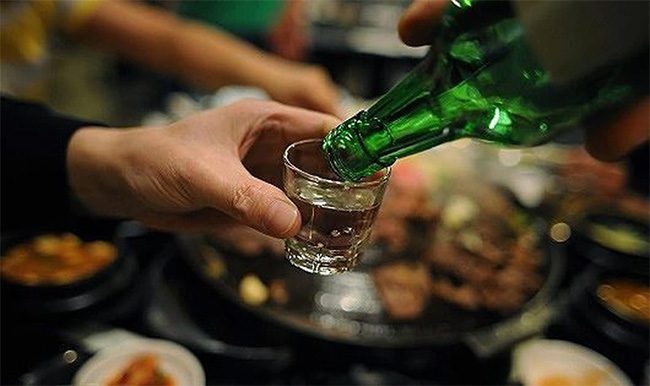A joint study conducted by researchers in Japan, South Korea, and Taiwan indicates that individuals who engage in social drinking do not necessarily reap more benefits at work compared to those who drink less.
Have you ever felt pressured to attend a drinking party with colleagues after work, even if you prefer tea over getting drunk?
A health magazine in Australia published an article discussing the tradition of drinking with colleagues as an almost essential part of the “work culture” in certain countries, particularly in East Asia.

Drinking socially more does not necessarily yield more workplace benefits.
A reporter in Sydney referenced the article, stating that in the aforementioned countries, after-work drinking parties are seen as opportunities to build trust and foster closer relationships with superiors, subordinates, and colleagues, as well as a space for more open discussions than in the workplace.
However, a joint study by researchers in Japan, South Korea, and Taiwan (China) found that those who engage in more social drinking do not always gain greater benefits in their jobs compared to those who drink less.
According to Professor Daiji Kawaguchi, an economist at the Graduate School of Public Policy at the University of Tokyo (Japan), while there is a widespread perception that social drinking plays a crucial role in business communication in East Asia, the research team found no evidence to support this claim, while health studies indicate that excessive drinking is detrimental to health, making this an important consideration for individuals deciding whether to drink.
The research team surveyed approximately 3,500 male workers in Japan, South Korea, and Taiwan (China) aged 25-59, utilizing a questionnaire with 45 questions covering health status, drinking habits, financial situations, and weekly working hours.
Survey participants were also tested for their alcohol tolerance using a simple alcohol patch.
The researchers were particularly interested in Asian men not only due to the “drinking culture” associated with work but also because of the “Asian Flush Syndrome”—a phenomenon where red patches or rashes appear on the face, neck, and even the entire body, accompanied by symptoms like vomiting, headaches, and rapid heartbeat after consuming alcohol, due to genetic factors affecting alcohol metabolism.
Professor Kawaguchi explained: “We wanted to investigate whether those with higher alcohol tolerance earned higher salaries.”
The study results revealed that although individuals with a higher “tolerance” drank more frequently and in greater quantities than those who were less tolerant, there were no significant differences in weekly working hours or income between the two groups.
Approximately 52% of survey participants in Japan and Taiwan, along with about 60% in South Korea, reported being alcohol intolerant. The researchers noted that these figures align with data recorded in medical literature.
A limitation of the study was that the sample size in South Korea was restricted to the capital, Seoul (about 500 individuals), which is less than in Taiwan (1,000 individuals) and Japan (2,000 individuals), with the proportion of respondents holding a university degree (92%) not representative of the average education level in South Korea.
Professor Kawaguchi expressed his desire to conduct a similar analysis with a larger dataset, collaborating with experts from various fields to examine the data more comprehensively, including insights from genetic databases regarding alcohol metabolism and socio-economic productivity.
Professor Kawaguchi shared: “I enjoy social drinking even though I can’t tolerate alcohol. However, drinking should not be mandatory.”


















































